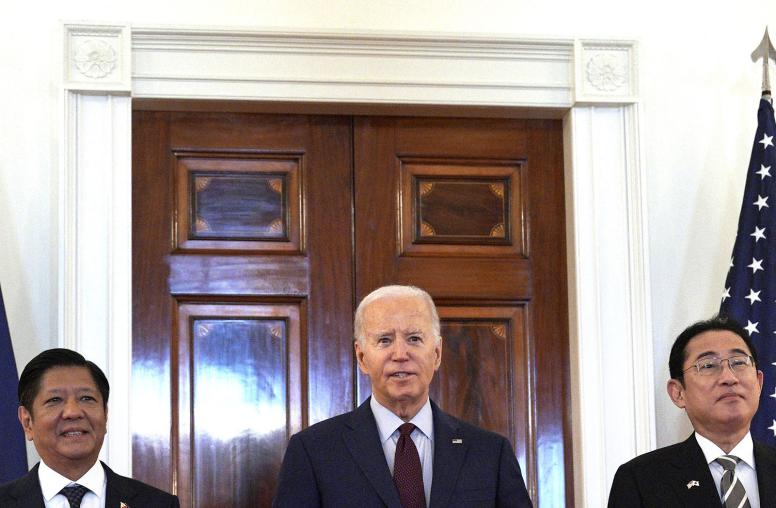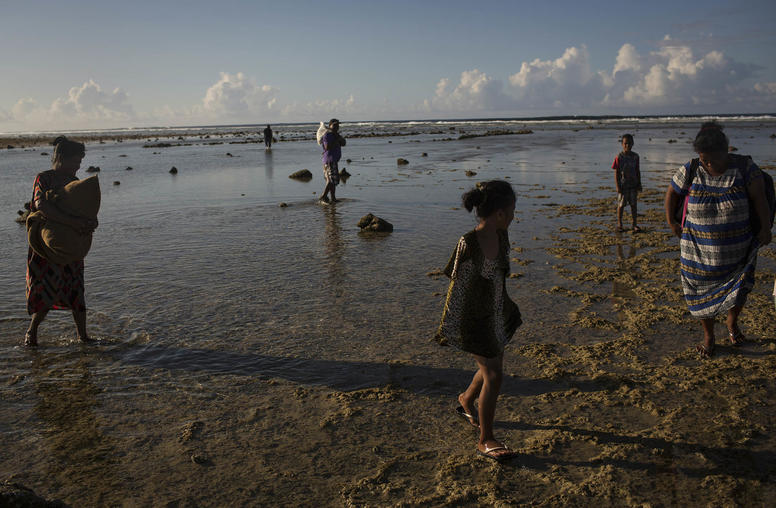Question And Answer
Publications
Articles, publications, books, tools and multimedia features from the U.S. Institute of Peace provide the latest news, analysis, research findings, practitioner guides and reports, all related to the conflict zones and issues that are at the center of the Institute’s work to prevent and reduce violent conflict.

Amid a Changing Global Order, NATO Looks East
As NATO celebrates its 75th anniversary this year, the Euro-Atlantic security alliance continues to deepen its engagement with Australia, Japan, South Korea and New Zealand, collectively known as the IP4. NATO has collaborated with these countries since the early 2000s, but Russia’s war against Ukraine, security challenges posed by China and renewed strategic competition have led to increased engagement. As the war in Ukraine grinds on and U.S.-China competition shows no sign of abating, the United States has much to gain from collaboration between its allies and partners in the Euro-Atlantic and Indo-Pacific.

A Rising Philippines Faces a Crucial Year Ahead
By virtue of its geography alone, the Philippines is arguably Southeast Asia’s most strategically important country. Yet its actual influence has tended to lag its potential due to decades of socioeconomic struggle and internal instability, especially in its restive southern island of Mindanao. In recent years, however, the Philippines has rapidly emerged as one of the most consequential countries in the Indo-Pacific, driven in large part by President Ferdinand Marcos’ transformative policies on national security, defense and foreign relations.

China's Vision for Global Security: Implications for Southeast Asia
China’s Global Security Initiative (GSI) marks a new phase in Beijing’s ongoing push to change the international security order. Through the GSI, China seeks to establish itself as a counterbalance to U.S. influence and to reshape security management in a number of strategically important regions. The GSI is still in the early stages of implementation, but it has already demonstrated the potential to disrupt the existing security framework in Southeast Asia. This may lead to increased polarization within the Association of Southeast Asian Nations (ASEAN), with some member states aligning with the GSI and others remaining cautious due to their stronger affiliations with the United States.

The Indo-Pacific’s Newest Minilateral Emerges
Last week, Philippines President Ferdinand Marcos Jr. stepped foot in the Oval Office for the second time in a year. Joining Marcos this time was Japanese Prime Minister Fumio Kishida, the leader of the United States’ most important ally in Asia and, arguably, the world. The Philippines has long been among a second rung of regional allies, so this first-ever trilateral summit marks Manila’s entrance as a leading U.S. ally working to maintain order and prevent Chinese revisionism in East Asia.

China’s Alternative Approach to Security Along the Mekong River
Speaking about “the rise” or the “emerging role” of the People’s Republic of China (PRC) makes little sense these days. The country is no longer simply transforming in a major power, but rather has achieved a level of influence that many other major countries around the world perceive as a threat economically, politically and militarily.

What Does the Xi-Ma Meeting Mean for Cross-Strait Relations?
Chinese leader Xi Jinping held talks on April 10 with former Taiwan president Ma Ying-Jeou in Beijing’s Great Hall of the People. The meeting came as tensions between Beijing and Taipei remain high, particularly following Taiwan’s election at the beginning of the year, which saw pro-sovereignty candidate William Lai Ching-te win a historic third term for the ruling Democratic Progressive Party (DPP). Ma served as president from 2008 to 2016, is a member of the Nationalist (KMT) party and is known for advocating closer ties with mainland China.

Why Counterterrorism in Afghanistan and Pakistan Still Matters
From wars in Ukraine and the Middle East to rising tensions in the South China Sea, there is no shortage of crises to occupy the time and attention of U.S. policymakers. But three years after the U.S. withdrawal from Afghanistan, the threat of terrorism emanating from South Asia remains strong and policymakers need to be more vigilant. Indeed, at the end of March, an Afghanistan-based affiliate of ISIS launched a devastating attack outside of Moscow, killing over 140 people.

Transnational Crime in Southeast Asia: A Growing Threat to Global Peace and Security
Organized crime is a significant driver of conflict globally. It preys on weak governance, slack law enforcement, and inadequate regulation. It tears at the fabric of societies by empowering and enriching armed actors and fueling violent conflict. In Asia, criminal groups prop up corrupt and dangerous regimes from Myanmar to North Korea, posing a direct threat to regional stability.

Senior Study Group on Counterterrorism in Afghanistan and Pakistan: Final Report
When announcing the US withdrawal from Afghanistan in April 2021, President Joe Biden identified counterterrorism in Afghanistan and Pakistan as an enduring and critical US national security interest. This priority became even more pronounced after the Taliban’s return to power in August 2021, the discovery of al-Qaeda’s leader Ayman al-Zawahiri in Kabul less than a year later, and the increasing threat of the Islamic State of Khorasan (ISIS-K) from Afghanistan. However, owing to the escalating pressures of strategic competition with China and Russia, counterterrorism has significantly dropped in importance in the policy agenda.

For the Marshall Islands, Nuclear Remembrance Day Is a Painful Reminder
Between 1946 and 1958, the United States detonated 67 nuclear and thermonuclear weapons in the Marshall Islands, a legacy that is commemorated today on the 70th anniversary of the Castle Bravo hydrogen bomb test. This nuclear legacy still reverberates in the Marshall Islands today, straining its relationship with Washington and creating a fissure that Beijing is exploiting as it seeks to increase its regional influence.